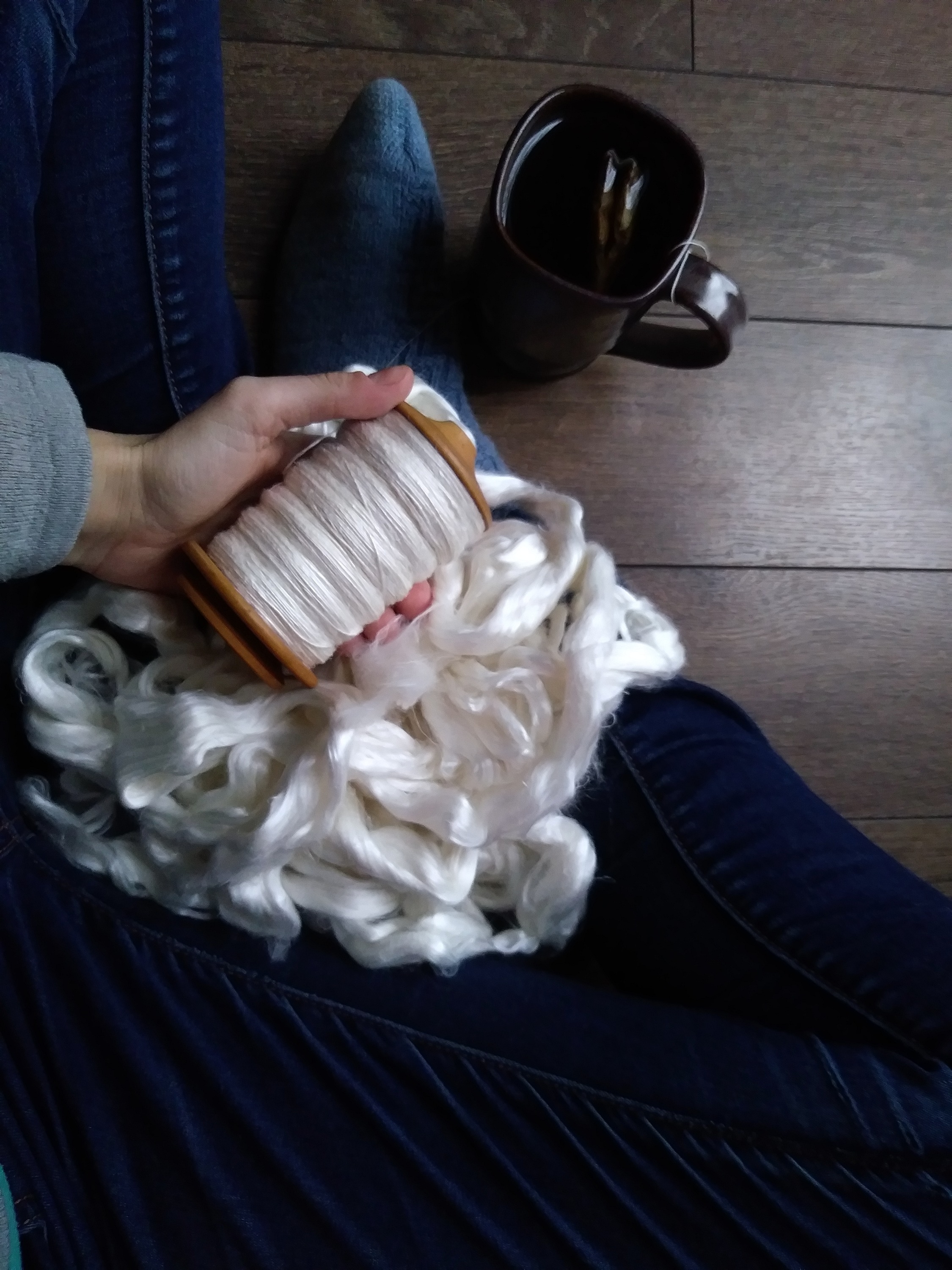Embarking on a Different Sort of Project - The Canadian Sweater
- Megan

- Jun 16, 2021
- 3 min read
Updated: Aug 16, 2021
I was incredibly fortunate to win the Canadian Fiber Artists Mini-Grant for the month of May, an ongoing grant which is organized by Promised Fibers and sponsored by Little Free Fibre Library. This is a small grant (up to $100 USD) that is offered every other month to a Canadian fibre artist, and is meant to be used for a personal project. Promised Fibers also offers other grants that are available to fibre artists outside of Canada, so I would encourage you to check them both out and learn more about their philosophy and goals. If you are in a position to make a donation and support their work, please consider doing so.
My application was based on a number of ideas that I have been pondering for some time. I have been growing more and more passionate about supporting Canadian businesses and supply chains (I am particularly inspired by the work that Anna of Long Way Homestead is doing to promote Canadian fibre farmers), as well as the idea of understanding the true cost of a garment, including land acknowledgement, tracing the supply chain and shipping logistics, etc. Over the past year in particular, we have come to see that although globally connected commerce has allowed us to achieve a great deal in terms of efficiency and low costs, it has come at the price of resiliency and appropriate remuneration for all those involved. The plan that crystalized is to create a sweater that is Canadian at every step (preferably British Columbian to be as local to me as possible), including the fibre farm, mill, vendor, spinning (me), pattern designer, and knitting (also me). My thought is to share information about each step along the way, including land acknowledgement, exploring the fibre traditions of the First Nations whose land is involved, and perhaps more information about costs, so as to understand if folks at each level are able to receive a fair wage. I am not trying to make an argument that this is the best way to do things - even with the grant to offset the cost of the fibre, I acknowledge that it is a privilege to have the time, space, equipment, and skills to do this work, and this type of making simply isn't feasible to clothe the majority of humans. Rather, I am hoping to increase my own understanding, and to share this process with others as I go along. I also understand that calling this project the Canadian Sweater is in itself hiding the role of First Nations peoples, by choosing to set the bounds of this project according to the borders of colonizers, rather than choosing to explore all of Turtle Island or perhaps a specific Nation. I am attempting to balance these often diametrically opposed desires, to support and promote both Canadian and First Nations interests and businesses. I welcome any feedback or thoughts on this.

[Image description: A close up photograph of a pile of braided roving that completely takes up the frame. The roving is brownish grey, and is lit by dappled sunlight.]
With that understanding in mind, I would like to share where I am in the planning and creating process. Funding from the mini grant went towards purchasing 500 g of Romney roving from The Small Bird Workshop, a delightful shop based on Vancouver Island that sells a variety of fibres and yarns, with a focus on products that are grown or milled in Canada (although not exclusively so). This fibre in particular comes from a sheep named Uganda, and was grown and milled on Vancouver Island (although I would like to learn more details about this, particularly for the purpose of land acknowledgement), so we are doing quite well keeping it local thus far! The next step is for me to select a sweater pattern, and then begin spinning. At one point I had considered dyeing the fibre with natural dyes gathered in my area, and I may still do that, but the natural colour of this fibre is so lovely that I am tempted to leave it as is. This will obviously be a long term project, without any specific deadlines or pressure to finish. Working slowly and purposefully on projects is my preference, and I find that this style of making helps to ground me and to increase the enjoyment and meaning I derive from creating. This is quite an ambitious project, not just in the making, but in the learning and sharing. By taking my time and working slowly and carefully, I hope that I will be able to do it justice.
If you've made it this far, thank you! I hope that you will stick with me on this journey. I would love to hear your suggestions for Canadian designers who publish sweater patterns. Either pullovers or cardigans are welcome, and I especially would love suggestions for BC designers.


Comments